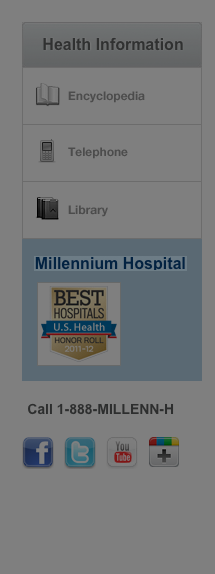Ethanol poisoning
 Print-Friendly
Print-Friendly
Ethanol poisoning is caused by drinking too much of the alcohol found in alcoholic beverages.
This article is for information only. DO NOT use it to treat or manage an actual poison exposure. If you or someone you are with has an exposure, call the local emergency number (such as 911), or the local poison control center can be reached directly by calling the national toll-free Poison Help hotline (1-800-222-1222) from anywhere in the United States.
Ethanol
I Would Like to Learn About:
Poisonous Ingredient
Ethanol
Where Found
Alcoholic beverages, including:
- Beer
- Gin
- Vodka
- Wine
- Whiskey
Symptoms
Symptoms may include:
- Abdominal pain
- Confusion, slurred speech
- Internal (stomach and intestinal) bleeding
- Slowed breathing
- Stupor (decreased level of alertness), even coma
- Unsteady walking
- Vomiting, sometimes bloody
Chronic alcohol overuse can lead to additional symptoms and multiple organ failure.
Home Care
If you can wake an adult who has had too much alcohol, move the person to a comfortable place to sleep off the effects. Make sure the person will not fall or get hurt.
Place the person on their side in case they throw up (vomit). DO NOT make the person throw up unless told to do so by a health care professional or Poison Control.
Check the person frequently to make sure their condition does not get worse.
If the person is not alert (unconscious) or only somewhat alert (semi-conscious), emergency assistance may be needed. When in doubt, call for medical help.
Before Calling Emergency
The following information is helpful for emergency assistance:
- Person's age, weight, and condition
- Name of the drinks consumed (ingredients and strengths if known)
- Time it was swallowed
- Amount swallowed
However, DO NOT delay calling for help if this information is not immediately available.
Poison Control
Your local poison control center can be reached directly by calling the national toll-free Poison Help hotline (1-800-222-1222) from anywhere in the United States. This national hotline will let you talk to experts in poisoning. They will give you further instructions.
This is a free and confidential service. All local poison control centers in the United States use this national number. You should call if you have any questions about poisoning or poison prevention. It does NOT need to be an emergency. You can call for any reason, 24 hours a day, 7 days a week.
What to Expect at the Emergency Room
The health care provider will measure and monitor the person's vital signs, including temperature, pulse, breathing rate, and blood pressure. The person may receive:
- Airway support, including oxygen, breathing tube through the mouth (intubation),and ventilator (breathing machine)
- Blood and urine tests including a blood ethanol level
- Chest x-ray
- CT (computerized axial tomography) scan
- ECG (electrocardiogram, or heart tracing)
- Fluids through the vein (intravenous or IV)
- Medicines to treat symptoms
Outlook (Prognosis)
Survival over 24 hours past the drinking binge usually means the person will recover. A withdrawal syndrome may develop as alcohol levels in the blood drop, so the person should be observed and kept safe for at least another 24 hours.
Related Information
References
Aronson JK. Ethanol (alcohol). In: Aronson JK, ed. Meyler's Side Effects of Drugs. 16th ed. Waltham, MA: Elsevier; 2016:179-184.
Lee JP. Acute alcohol and drug poisoning. In: Lee JP, ed. ICU Quick Drug Guide. Philadelphia, PA: Elsevier; 2021:chap 18.
Nelson ME. Toxic alcohols. In: Walls RM, ed. Rosen's Emergency Medicine: Concepts and Clinical Practice. 10th ed. Philadelphia, PA: Elsevier; 2023:chap 136.
